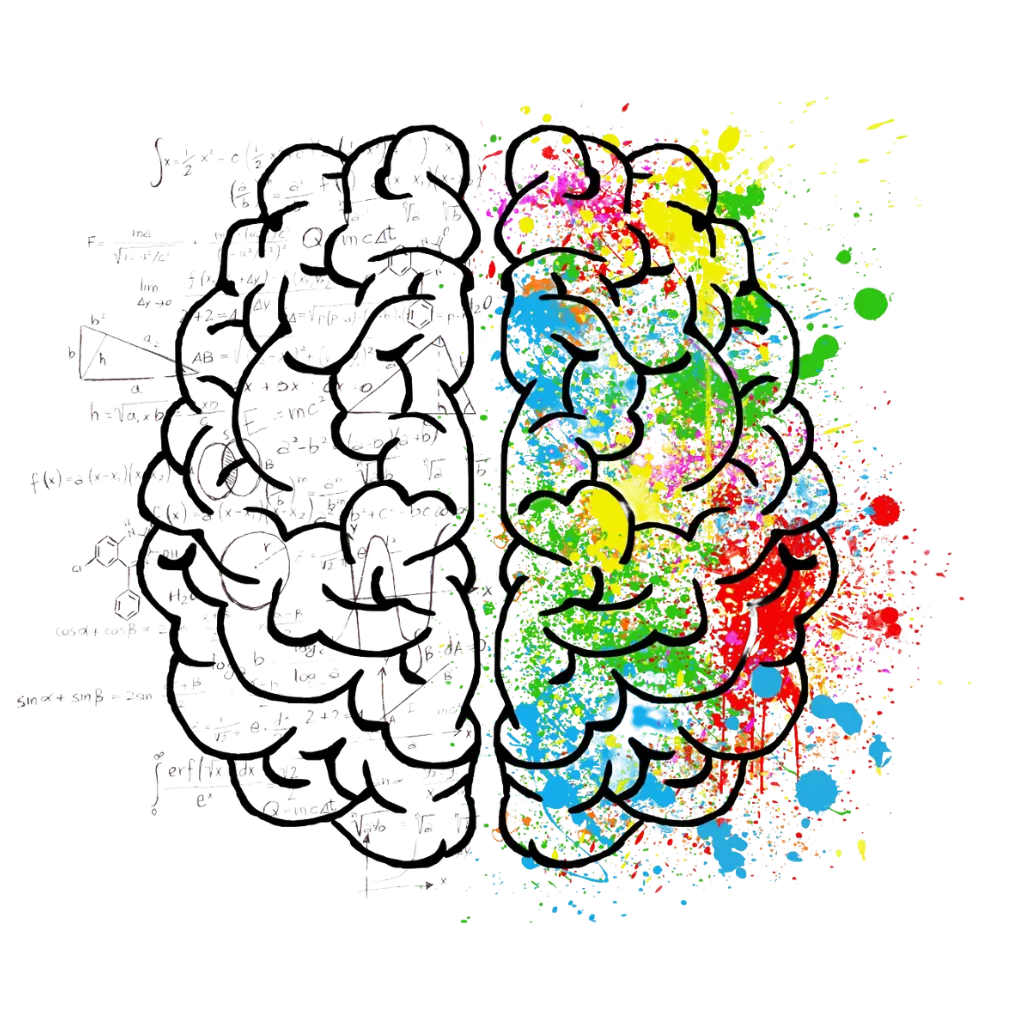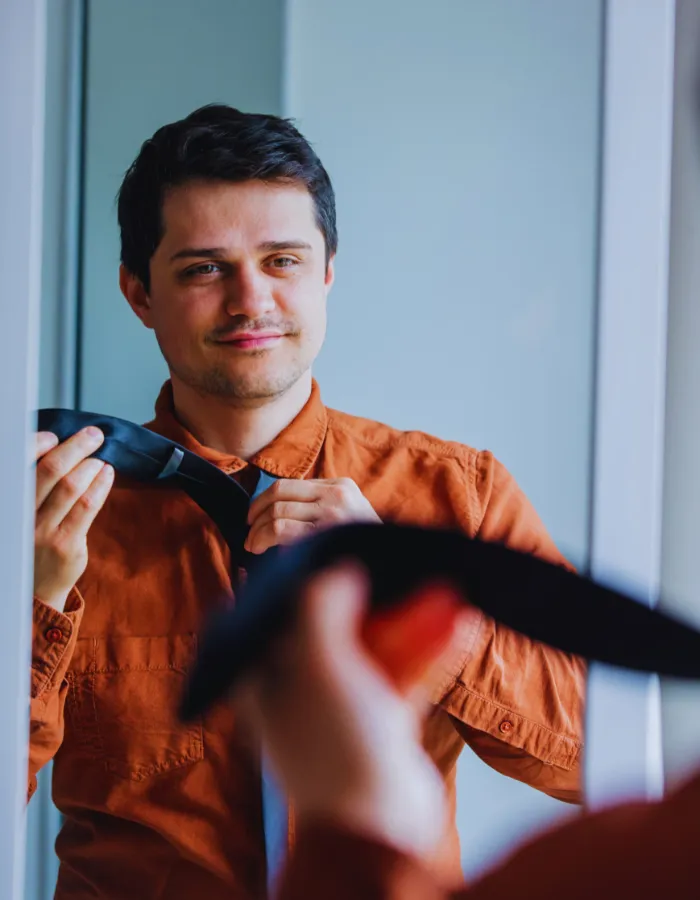Welcome to The Life Skills Spot!
A place to understand your brain and build a life that fits you. We offer warm, expert support to Autistic & ADHD children, teens, adults, and families
Empowering People, Transforming Lives

Occupational Therapy
- 60 minute sessions
- Intake Session required
- Treatment plan created
- Clinical notes maintained
- Superbill provided
- Eligible for use of FSA/HSA funds
- Diagnosis required
- Available weekdays
Only available in DC, Maryland, and Virginia. Please inquire about in person options near Takoma Park, NW DC, Silver Spring, and Bethesda.

Coaching
- 30 or 60 minute sessions
- No treatment plan or formal intake... just jump right in
- Session summary post-session if desired
- No superbill created
- No diagnosis required
- No clinical notes
- May be eligible for FSA/HSA funds (check with plan)
- evening and weekend sessions available
Available virtually anywhere in the world

Membership Community
- Weekly group calls
- 48 hour response to questions in the community
- Weekly accountability emails to keep you on track
- Access to video library, articles, and printables to help you manage your life!
Empowering Minds, Transforming Lives

Occupational Therapy
- 60 minute sessions
- Intake Session required
- Treatment plan created
- Clinical notes maintained
- Superbill provided
- Eligible for use of FSA/HSA funds
- Diagnosis required
- Available weekdays
Only available in DC, Maryland, and Virginia

Coaching
- 30 or 60 minute sessions
- No treatment plan or formal intake... just jump right in
- no clinical notes maintained... you'll receive a session summary
- No superbill created
- No diagnosis required
- May be eligible for FSA/HSA funds (check with plan)
- evening and weekend sessions available
Available anywhere in the world

Membership Community
- Weekly group calls
- 48 hour response to questions in the community
- Weekly accountability emails to keep you on track
- Access to video library, articles, and printables to help you manage your life!
We Know What
Neurodivergent Brains Need!
• holistic perspective considers a person, the activity, and the environment
• fix underlying issues instead of just learning to cope
• licensed professional with required education and oversight ensures evidence-based, high-quality approaches… and can be reimbursed by insurance

• strengths-based and solution-focused, not a one size-fits-all approach.
• training in neuroanatomy, physiology, cognition, and human development
• our practice is created for Neurodivergent brains with robust wrap-around services, evening and weekend availability, and different support levels
What Do We Address?

Executive Function
The "Air Traffic Control" system in the brain. It is a set of skills that allows us to respond appropriately to situations. Executive Function skills include: Working Memory, Time Management, Cognitive Flexibility, Organization, Attention, Emotional Control, Task Initiation, Planning
Evaluation Tools: BRIEF-ADHD, BRIEF-P, BRIEF-2 (Home, School, Student forms available)

Motor Skills
Our Motor Skills allow us to develop functional strength and responsiveness to use tools and interact with our environment. When our motor skills are impaired, it puts an additional strain on our executive function, as our brain must problem-solve around the obstacle of the decreased motor control. We assess and treat aspects of our motor system including: Strength, Speed, Coordination, Coordination, Muscle tone, Reflex management
Brunicks-Oseretsky Test of Motor Proficiency, 2nd Edition, Grip and pinch strength, Primitive reflex testing

Visual Perception
is a set of skills that helps us to organize, process, and make meaning of things we see. When this is impacted, we may take more time to process this information, or it may not have the same meaning to our brain as to others. There are many skills included in this area such as: Visual Discrimination, Visual Memory, Spatial Relationships, Form Constancy, Sequential Memory, Visual Figure-Ground, Visual Closure
Evaluations: Test of Visual Perception Skills, 4th Edition, Beery-Buktenica Test of Visual Motor Integration

Sensory System
Allows our body to know when a situation or environment is safe and suitable for certain activities and assists us in preparing an appropriate response. For example, if an environment is busy, bright, and loud, our body tells us that it is not a safe place to go to sleep and that we should be prepared to react quickly. If we are receiving information that our environment is threatening, we are in our Fight or Flight system in which we react to protect ourselves. Learning and smart decision-making takes place when we are able to respond from within our Rest and Relax system. Our sensory system integrates information from several receptor systems: Visual, Auditory, Olfactory, Tactile, Gustatory, Proprioceptive, Vestibular
Evaluations: Sensory Processing Measure, 2nd Edition, Sensory Profile

Adaptive Skills
Adaptive Skills support our development includes creating skills that help us to adapt to our environment. Diagnoses such as ADHD, ASD, TBI, dementia, and intellectual disabilities result in impairments in our skills for navigating life. Assessing adaptive life skills allows us to appropriately scaffold our supports to help these areas mature. We can assess developmental level in three primary areas: Communication, Daily Living Skills, Socialization
Evaluations: Vineland Adaptive Behavior Skills, 3rd Edition, Adaptive Behavior Assessment System, 3rd Edition (ABAS-3), Assessment of Functional Living Skills (AFLS)
About Me
Meet the Mind Behind the Mission

Hello, I’m Maggie!
"If the world just doesn't seem to fit right, you're in the right place."
My Story: My journey into Occupational Therapy began over 20 years ago as a client, learning to support my own sensory system in a world that often felt too loud and uncomfortable. I know the relief that comes from finally understanding how your brain and body work.
My Professional Skills: Beyond my lived experience, I have a decade and a half of training as an Occupational Therapist. I specialize in cognition and sensory needs for neurodivergent people and am a Certified Autism Spectrum Disorder Clinical Specialist (ASDCS) and an ADHD-Certified Rehabilitation Services Provider (ADHD-RSP).
Our Approach Together: We will work to adapt your environment and adjust your life to fit you. We can even incorporate the calming aspects of nature into our sessions.
#neurodiversity
What is Neurodivergence?
✔ Neurodiversity refers to the full array of ways that human beings can be wired. Like biodiversity, neurodiversity is essential for survival.
✔ Neurodivergence refers to a brain and body's way of processing information that significantly differs from typical. While neurodivergences can be acquired, we specialize in genetic neurodivergences such as ADHD, Autism, and High Sensitivity.

ADHD
People with ADHD can bring vibrance, creativity, enthusiasm, and passion to a team. They can be the creative butterflies, bringing color and magic. They can get surprising amounts done in a short amount of time and thrive under pressure.

Autism
People who are autistic are often highly capable problem-solvers. If they are given the pieces, they will put together the puzzle. They can assimilate vast amounts of information and put it together in a systematic and cohesive way.

Highly Sensitive
Highly sensitive people have increased sensory and emotional sensitivity, strong intuition and empathy, and catch subtleties quickly. They can notice small but important aspects of projects and consider the implications of a complicated decision.
Discover the Power of Life Skills
Whether it's relationships, job readiness, self-care, or executive functioning, our Life Skills programs are built to support individuals with ADHD and Autism as they navigate daily challenges and unlock their full potential.
Learn What Life Skills Really Mean
Discover the Power of Life Skills
Whether it's relationships, job readiness, self-care, or executive functioning, our Life Skills programs are built to support individuals with ADHD and Autism as they navigate daily challenges and unlock their full potential.
Learn What Life Skills Really Mean
#neurodiversity
What is Neurodiversity?
✔ Neurodiversity refers to the full array of ways that human beings can be wired. Like biodiversity, neurodiversity is essential for survival.
✔ Neurodivergence refers to a brain and body's way of processing information that significantly differs from typical. While neurodivergences can be acquired, we specialize in genetic neurodivergences such as ADHD, Autism, and High Sensitivity.

ADHD
People with ADHD can bring vibrance, creativity, enthusiasm, and passion to a team. They can be the creative butterflies, bringing color and magic. They can get surprising amounts done in a short amount of time and thrive under pressure.

Autism
People who are autistic are often highly capable problem-solvers. If they are given the pieces, they will put together the puzzle. They can assimilate vast amounts of information and put it together in a systematic and cohesive way.

Highly Sensitive
Highly sensitive people have increased sensory and emotional sensitivity, strong intuition and empathy, and catch subtleties quickly. They can notice small but important aspects of projects and consider the implications of a complicated decision.
Discover the Power of Life Skills
Whether it's relationships, job readiness, self-care, or executive functioning, our Life Skills programs are built to support individuals with ADHD and Autism as they navigate daily challenges and unlock their full potential.
Learn What Life Skills Really Mean
Discover the Power of Life Skills
Whether it's relationships, job readiness, self-care, or executive functioning, our Life Skills programs are built to support individuals with ADHD and Autism as they navigate daily challenges and unlock their full potential.
Learn What Life Skills Really Mean
Unlock Support & Answers, Join Our Open Office Hours!
Get real-time guidance from an occupational therapist every Monday at 8:00–8:30pm and Friday at 12:30–1:00pm (ET). Ask questions, explore strategies, and connect with a community that understands neurodiversity.
Your Path to Clarity Starts Here
Feeling overwhelmed or unsure where to begin? Our quick Fit Finder is a simple and supportive way to see if our services are a great match for your needs.
Stay connected and informed. Subscribe to our newsletter for expert tips, mental wellness resources, and updates straight to your inbox. Join our community and start your journey to better mental well-being today!
Quick Links
Resources
© The Life Skills Spot 2026 All Rights Reserved.



